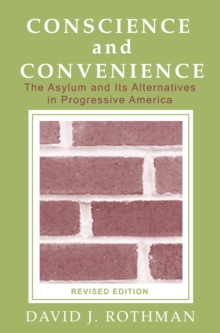
Criminal Circumstance : A Dynamic Multi-Contextual Criminal Opportunity Theory Paperback / softback
by Pamela Wilcox, Kenneth Land, Scott A. Hunt
Part of the New Lines in Criminology Series series
Paperback / softback
Description
The main objective of this book is to propose an alternative criminal opportunity theory.
The authors build upon social control and routine activities to develop a dynamic, multi-contextual criminal opportunity theory.
Emphasizing the importance of contextual explanations of criminal acts, they propose two levels of analysis: individual and environmental.
At each level, the theory pivots on three broad organizing constructs--offenders motivated to commit criminal acts, targets such as persons or property suitable as objects of criminal acts, and the presence or absence of individuals or other defensive mechanisms capable of serving as guardians against criminal acts.
Crime is profoundly real, possessing qualities that make its occurrence and prevention pressing and persistent matters for individuals and societies.
Theory, in contrast, is seen as highly abstract and removed from the seriousness of "real life." Theory almost seems to be a peculiar sport of an academic class.
The practically minded, even some academic criminologists, are often perplexed by the seeming obsession some scholars have with theory, which, after all, is nothing more than an explanation of facts.
The practically minded, seeing a compelling need to identify the crucial factors that could be used to predict and prevent crime, wonder why anyone would invest precious time and energy into speculating about the abstract, underlying details of why crime occurs when and where it does.The authors contend that every intervention, prevention, and policy is based on some theoretical explanation of the causes of human behavior.
The improvement of interventions, preventions, and policies is thus directly related to the improvement of theoretical understandings of the abstract, underlying details of the causes of crime.
The development of explanations of events, when properly done, is a crucial component to understanding and possibly improving the "real world." This work does just that.
Information
-
Out of stock
- Format:Paperback / softback
- Pages:264 pages
- Publisher:Taylor & Francis Inc
- Publication Date:30/04/2002
- Category:
- ISBN:9780202307213
Other Formats
- Hardback from £130.00
- EPUB from £38.69
- PDF from £38.69
Information
-
Out of stock
- Format:Paperback / softback
- Pages:264 pages
- Publisher:Taylor & Francis Inc
- Publication Date:30/04/2002
- Category:
- ISBN:9780202307213










